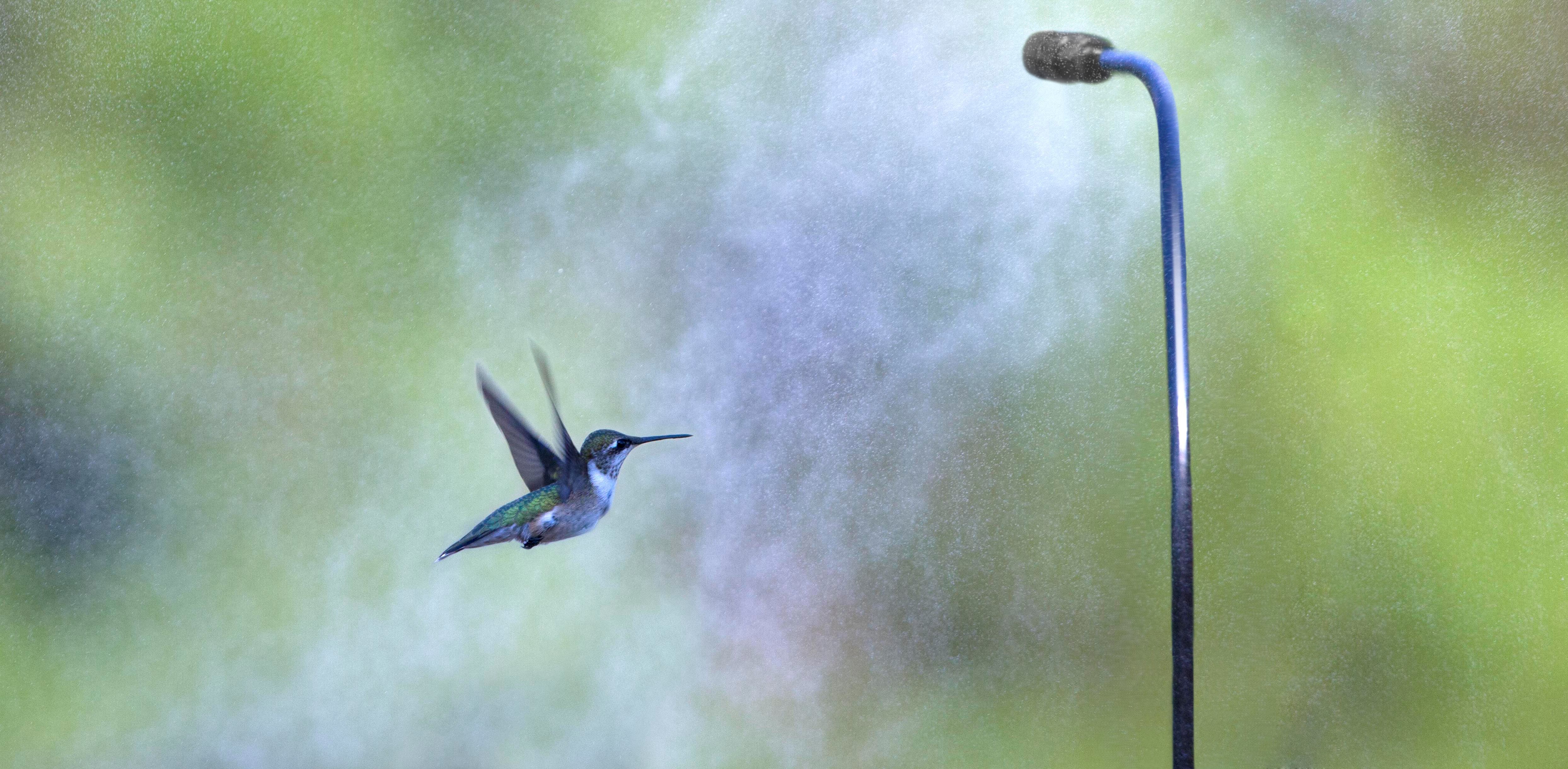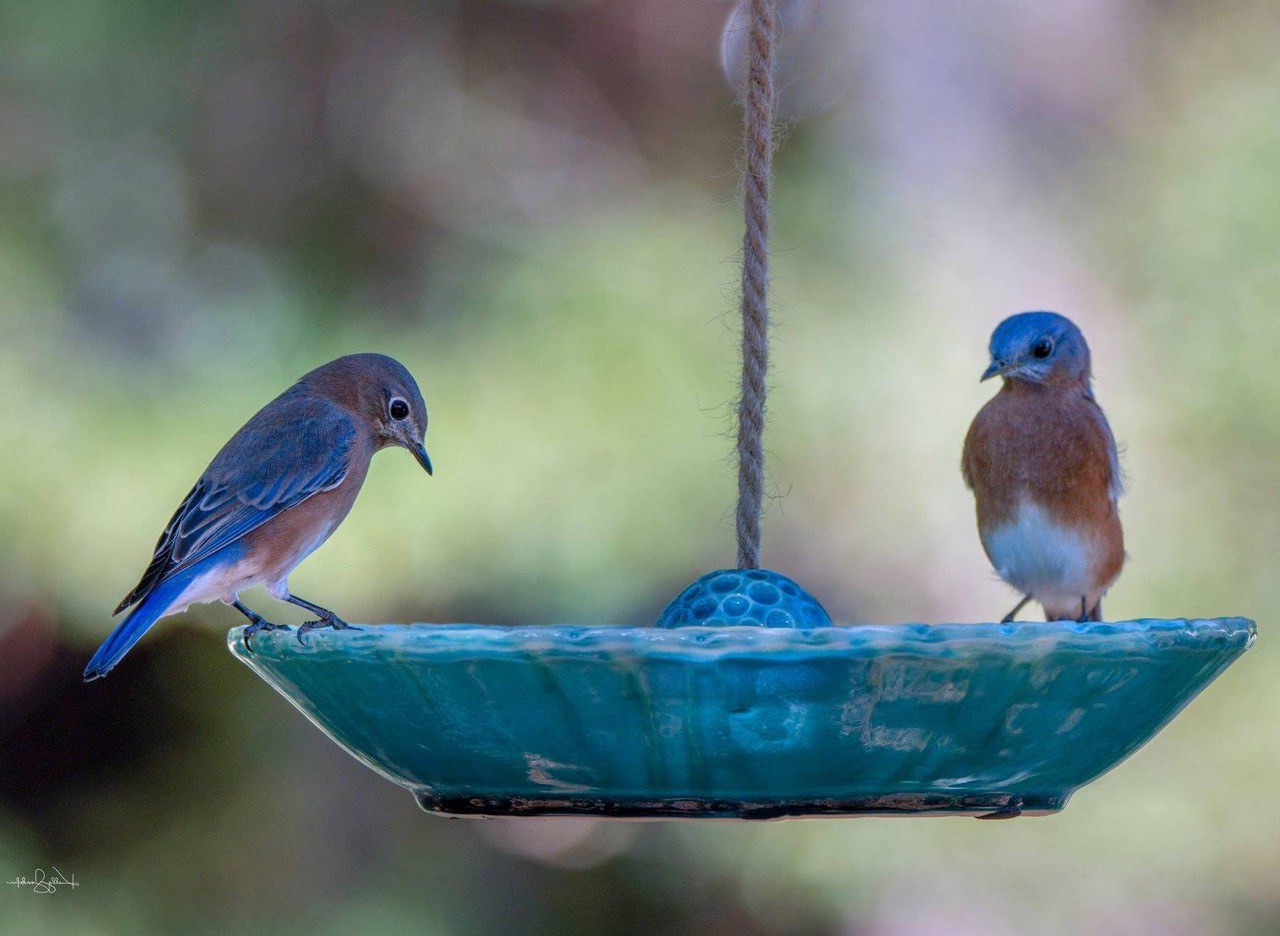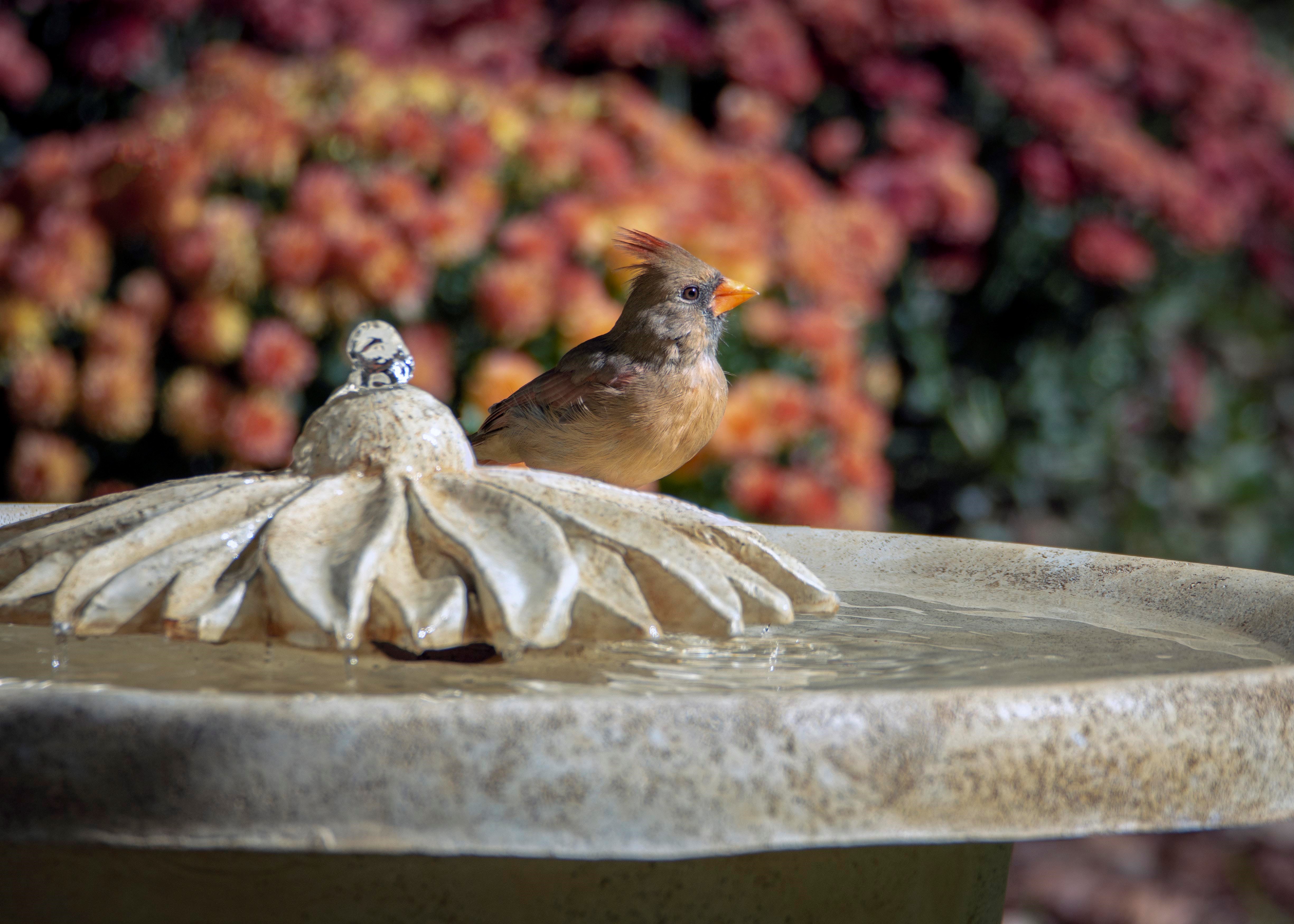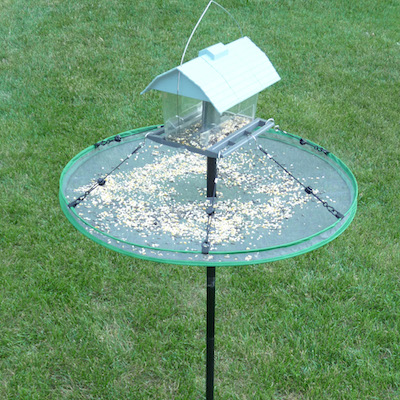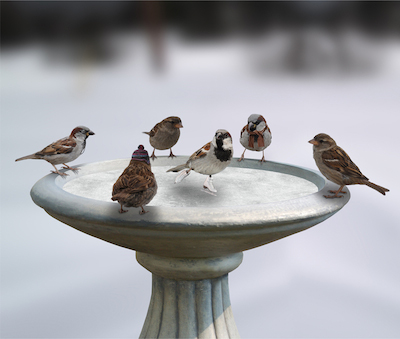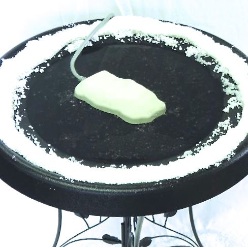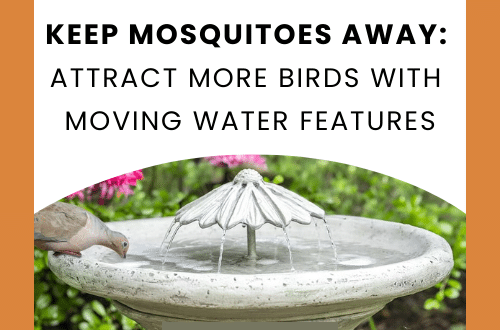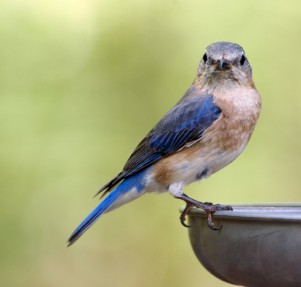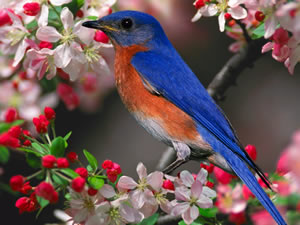-
Yes, They Make Bird Seed Trays for Poles
One of the down-sides of feeding birds (for some folks) is the ground mess with which to contend. There are easy ways to avoid waste pretty much altogether… and fairly easily.
Whether hanging or pole-mounted, there’s a solution with bird seed trays. This one is adjustable and accommodates almost any style feeder out there! Although the Seed Hoops hang, they’ll slide nicely right over a pole as well. It’s as simple as cutting a small slit in the center of the tray.
Also in wood and durable recycled plastic, seed trays are available for 4×4 posts too.
A tad more sturdy, the poly-lumber (or recycled material) truly does last a lifetime.
A few other measures to avoid ground mess or at least reduce its presence, is using a no-waste seed. Because there are no fillers, birds are less likely to sort through and pick out the good stuff! Fillers are what ends up on the ground anyway, millet, milo and corn being most common. Sunflower hearts are always a great choice, and you can bet anything that does land on the ground gets scarfed up quickly.
Suet is another alternative for clean feeding. Many birds will partake and there’s no waste. Thistle’s also a good choice as these seeds will not germinate. You won’t see as many species with thistle alone (mostly finches), but when offered along with suet, there should be a good variety. Chickadees, nuthatches, warblers, woodpeckers, and even bluebirds in winter will go for suet.
So if the feeding mess has you down, don’t give up the ship yet… try using a bird seed tray and offering cleaner seed. The birds are worth it 🙂
-
Bird Baths and the Non-Alernative
What a fun image… even though the subject is house sparrows, but c’mon… bird baths are pretty useless once turned skating rink 🙁
Aside from the skater, the one with the hat is too cute- thanks Elmer for the creative… it’s perfect! Adding a simple bath heater makes water accessible through winter months. Being a critical life force, you’d be surprised at the variety of feathered friends who will frequent a fresh water source during hard freezes. Even when there’s snow on the ground, good old H2O serves birds much more effectively.
The main mode of survival during bitter weather is to eat enough food throughout the day to store a layer of fat, enough to get them through the night. So when a bird eats snow to get water, they burn precious calories in the process converting that snow to water.
Heated bird baths however are as simple as plugging them into an outlet, thus eliminating this futile process. For use year-round, just unplug and tuck the cord when spring finally rolls around. If you have an existing bath that gets turned over for winter – stop! Just add a heater as an accessory, the newer ones are safe in most baths and they even come with manufacturer warranties these days.
Even bluebirds are more likely to over-winter if a consistent fresh water source is available to them. So nix the skating rink and the dreaded bath “turn-over” as you’ll entice more beaked buddies to your place and encourage them to stick around!
-
The Mealworm Feeder New Year’s Resolution
Soooo guilty as charged below, ours gets stocked twice per day! Spoiled, spoiled birds- really isn’t the best scenario for them, it’s out of selfishness for simply wanting to observe. One 2015 resolution… lay off that mealworm feeder while weather remains mild and until there’s some nestlings for mom and dad to raise. The logic’s well explained below.
“WAY too many people worry about buying mealworms by the thousands, spending WAY too much money and feeding them normally at a time of the year when a healthy bluebird should be able to find WAY more than enough natural foods. Johnny Appleseed planted apple trees that were still producing fruit for many decades after he was gone! There are dozens, if not hundreds of species of plants in most areas that will provide fruits and or berries that bluebirds will feed on at different times of the year. Many/most of these are hardy enough that anyone could become an amateur “Johnny Appleseed” planting for wildlife in their own area. Keith Kridler Mt. Pleasant, Texas”
Bet you thought there would be all kinds of newfangled mealworm and bluebird feeders here? Nope! Almost weird how this info was received on the heels of discovering an article on Houzz, which was titled “Feed the Birds: 6 Plants for Abundant Winter Berries” by Therese Ciesinski.
These shrubs and trees not only enhance the landscape (the pics were stunning) they’ll offer birds natural food sources for years to come. Listing them here and tucking the list in my wallet for the future jaunts to the nursery!
- Winterberry
- Northern Bayberry
- Arrowood Viburnum
- Chokeberry
- Dogwood
- Crabapple
Looking back over 2014 and the small slice of heaven that is our habitat, it’s honestly helped to keep sane! A retreat, an escape, an unexplainable aspect of nature that calms, decompresses and relaxes the soul. A quote from Roger Tory Peterson sums it up pretty well: “The birds could very well live without us, but many-perhaps all-of us would find life incomplete, indeed almost intolerable without the birds.”
Wishing you and yours a happy and healthy 2015!
Hummingbird Feeders
about feeders & accessories

